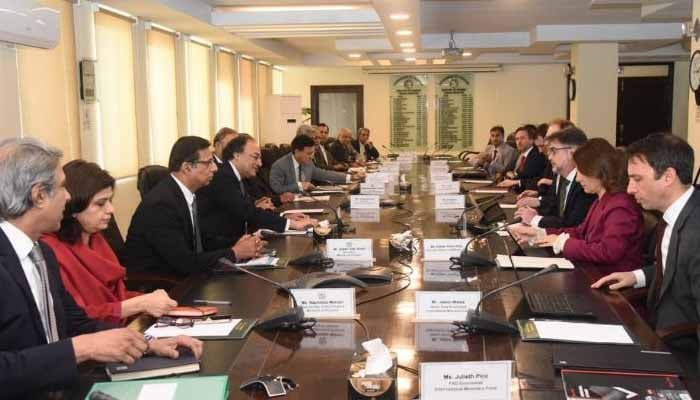ISLAMABAD: The possibility of fixing the annual tax collection target between 112 trillion to 115 trillion rupees is being considered.
The IMF has proposed two models of tax harmonization: Australia and India to implement the tax model and said that it should be overhauled.
The IMF wants to levy 18 percent general sales tax on petrol and diesel while the Center wants to keep the revenue collected from the provinces.
Sales tax suffers from many serious defects and structural inefficiencies, the tax is divided into federal and provincial, limited tax base of goods, preferential tax supplies and long generous lists of tax exemptions.
The IMF is continuously trying to convince Pakistani tax authorities to consider two options for overhauling the general sales tax, either to move towards the Australian model in which the central administration sets the rate. And it is independently designed and implemented, with a strict revenue-sharing formula.
Another way is to apply Indian-style CVAT, in which the provincial and federal authorities are in the same tax administration and collect taxes nationally, and trade between states is subject to a third, federal rate.
The IMF has asked Pakistan to set a single turnover-based registration threshold in the FBR, which should be $30,000 for all businesses.
Sales tax is hampered by many serious defects and its structural inefficiencies which are particularly the following: Number one tax fee is divided between federal and provincial which creates serious loopholes in the taxation system and which is biased trade. is the source of
Number Two: There are long generous lists of preferential tax supplies and tax exemptions within the limited tax base of commodities. Number three, the federal sales tax system for commodities is difficult to administer and enforce due to the large number of non-enforceable taxes.
One of the implications of this is the need to use resources in a manner that leads to the resolution of disputes with taxpayers over the rate of tax applicable to any particular item.
The IMF estimates that if all its recommendations on general sales tax are implemented, an additional revenue of Rs 1,300 billion could be generated. The IMF has called for the abolition of all types of zero-rating except for exports under the Fifth Schedule.
The IMF requires all other goods to be taxed at a general sales tax rate of 18 per cent. The IMF has recommended that the exemption given in the Sixth Schedule be restricted to the first sale of residential property only and bring all other items to the standard rate. This will also raise the tax on fuel to the average of other countries in the region.
IMF has called for 18% general sales tax on petrol and diesel. A senior government official has said that the government is giving the option of imposing a carbon levy so that the revenue does not form part of the NFC award and the Center can use the non-tax revenue alone as it wishes.
The IMF says it should reduce all concessional rates under the Eighth Schedule and bring these items under standard rates. Yes, a reduced tax rate of 10% can be availed on certain essential food items and health and education items.
The Fund has recommended that all disruptive changes in tax policy related to enforcement be eliminated. These include the abolition of minimum tax and surtaxes as well as abolition of the Ninth and Tenth Schedules. Sales tax expenditure can be brought down to a reasonable level and the estimated revenue can be brought up to 1.3% of GDP.







